Good People on Good Boats
The simple mantra of Rooster Recruitment has resonated. Ex-yachtie and Director Jack Greene joins SuperyachtNews to reflect on three years in business…
In the yachting industry, there’s a widely acknowledged shortage of quality crew, making it a challenging task for recruiters to fill positions. With close to 200 yachts entering the fleet each year, and a growing percentage of those operating expedition programmes, the challenge of effectively meeting this demand is becoming more acute. In the traditionally conservative realm of on-board recruitment, a new player is disrupting the status quo.
Rooster Recruitment, founded by former yachtie Jack Greene in 2020, has experienced rapid growth. With over 100 yachts on its books, including some renowned exploration programs, its mantra is simple: “Good people on good boats”. I had the chance to catch up with Greene in Auckland, eleven years after our first meeting as wide-eyed dock walkers in Palma, both just starting on our yachting journeys.
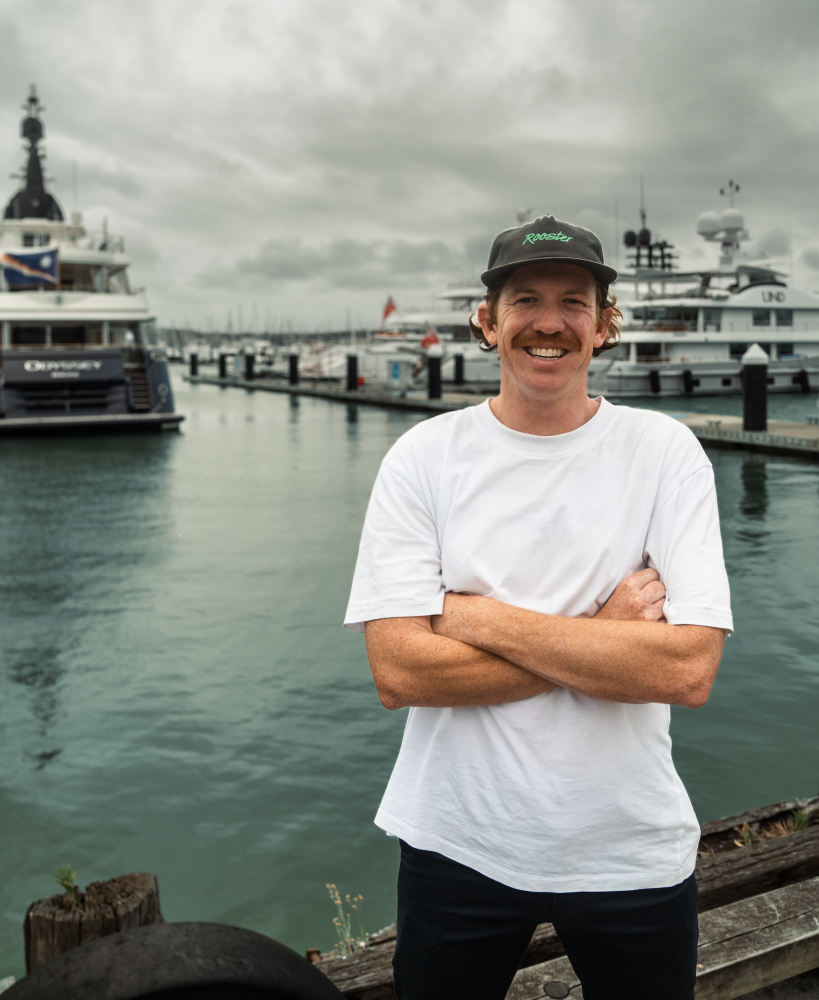 Rooster Recruitment Director Jack Greene
Rooster Recruitment Director Jack Greene
Stepping into a highly competitive and well-established sector, Rooster has already ruffled a few feathers. Greene reflects, “I believe many crew agencies have had it relatively easy for a long time. However, this complacency has caught up with some of them, and clients have realised that many weren't even meeting the basics, let alone excelling in their service.”
The human resource shortage has been highlighted by numerous sectors and was a hot topic of discussion at The Superyacht Forum in 2023 and across the show season. However, Greene has a more nuanced view.
“We frequently hear the complaint that there are no good crew available. I firmly believe that outstanding crew members are still out there; you just need to search harder and, crucially, offer the right package to attract them.”
Rooster has enjoyed an impressive first three years in business. Greene and his business partner, Jason Bryan, manage crew for over 100 yachts. Both in their 30s with backgrounds in yachting, they have established themselves as the go-to specialists for crew placement in adventurous programs, particularly in the Pacific region.
“It may sound simple,” continues Greene, “but you have to ensure you're reading the brief, and for us, that means looking beyond it. It’s not merely a matter of finding someone with 18 months of boat experience who ticks a few boxes.”
Rooster’s website offers a refreshing change of approach. There are only two pathways, and both the ‘find crew’ and ‘find a boat’ sections consist of a short, casual message from the team and a direct email link. Nothing resembling the tomes of personal information, supporting documents and references that act as a gateway on so many other sites.
Captains and heads of departments often share stories of posting job ads and receiving a flood of mediocre and ill-suited candidates, mostly sourced from the same pool. According to Greene, this can be down to the inter-recruiter politics of ‘first-come, first-served’ whereby recruiters race to be the first to have a CV across someone’s desk (and in line for commission) – leading to subpar service.
Multi-yacht programs with scientific, exploration and philanthropic missions operate on a different level compared to traditional yachting clichés and it is with these programmes that Rooster has carved out somewhat of a niche. “One of the first programs that approached us was a high-profile group of yachts operating across the Pacific. They've had eight senior crew members for over a decade, which is quite unusual.”
This longevity is no coincidence, Greene stresses. The fleet employs rigorous vetting and review processes to ensure a balanced mix of personalities on board, recognising the importance of harmony regardless of qualifications. To effectively crew a program such as this, Greene says, a recruiter needs to be thinking beyond the brief.
A key driver of Rooster’s success, according to Greene, has been the use of video profiles. “There are many impressive CVs out there; this is a job that hinges on personality, and a video profile can convey a lot. This is a chance for crew to get across who they are in a short 30-second clip, and helps us connect the right people with the right boat – looking past the CV.”
“Our guiding principle at Rooster is that we won't place anyone on a yacht where we wouldn't personally feel comfortable working, and we stand firmly by this. There's a no-questions-asked veto among our team – if a yacht or position doesn't feel right, we won't place crew there.”
The term ‘Greenie’ has taken on negative connotations, but the pathways for new entrants to the industry remain wedded to archaic traditions like dockwalking. The challenges faced by new crew members in Palma and the South of France nearly pushed both Greene and myself to the brink. We started our careers at the same time and even worked together on our first-day job, washing down a 40m Feadship. We owe a debt of gratitude to the first mate, Adam, for taking a chance on a couple of Kiwi newcomers. Without that opportunity, we were both on the verge of leaving the industry.
Many senior crew and heads of department still cling to the belief that junior crew should endure hardships for success, just as they did. According to Greene, this approach is a missed opportunity. “It’s still an issue,” Greene admits, “We’re actively engaging with new crew, and that's something I take pride in. I read every CV that comes our way, and while many need substantial work, I don’t dismiss them.”
“Far too often, crew members from diverse backgrounds enter the industry with high hopes and expectations, only to leave because they weren’t given a chance by agents or captains. How many people do we know who quit dockwalking or left after a bad job experience, from a role they were told they had to take to start their careers?”
Greene concludes, “The industry is changing rapidly. Today, it’s almost standard for crew members to receive 90 days of leave, with an increasing number of positions adopting some form of rotation. Those who want to attract and retain quality crew need to adopt new leave and rotation standards or risk falling behind. Embracing change for a new generation of crew will lead to better retention and recruitment. It’s not just a numbers game anymore.”
Profile links
NEW: Sign up for SuperyachtNewsweek!
Get the latest weekly news, in-depth reports, intelligence, and strategic insights, delivered directly from The Superyacht Group's editors and market analysts.
Stay at the forefront of the superyacht industry with SuperyachtNewsweek
Click here to become part of The Superyacht Group community, and join us in our mission to make this industry accessible to all, and prosperous for the long-term. We are offering access to the superyacht industry’s most comprehensive and longstanding archive of business-critical information, as well as a comprehensive, real-time superyacht fleet database, for just £10 per month, because we are One Industry with One Mission. Sign up here.
Related news
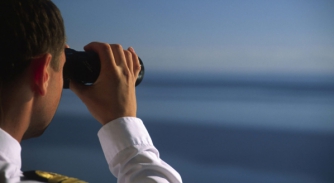
Captain salaries on the rise
Quay Crew’s most detailed salary report to date reveals a rise in captains’ wages following a slight decline in recent years, amongst other findings
Crew
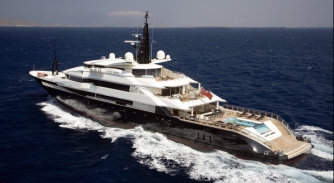
From Nero to Hero
A high court judge has ruled in favour of Nautilus’ claim, with more than a year’s wages set to be paid to the crew of Alfa Nero
Owner
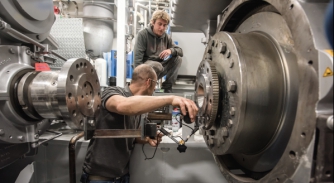

Talking about our next generation
The problems of procuring and retaining new talent in the industry were painfully evident during Lürssen's TSF: Connect session
Crew
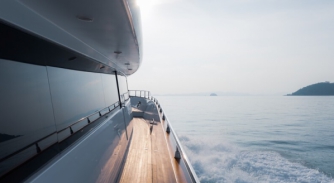
Demand for crew support grows
Calls to ISWAN’s crew helpline have increased with rising trends in reports of poor mental health, unpaid wages and abuse
Crew
Related news
Captain salaries on the rise
1 year ago
From Nero to Hero
1 year ago
Comforts at the coalface
1 year ago
Talking about our next generation
1 year ago
Demand for crew support grows
1 year ago
NEW: Sign up for
SuperyachtNewsweek!
Get the latest weekly news, in-depth reports, intelligence, and strategic insights, delivered directly from The Superyacht Group's editors and market analysts.
Stay at the forefront of the superyacht industry with SuperyachtNewsweek



